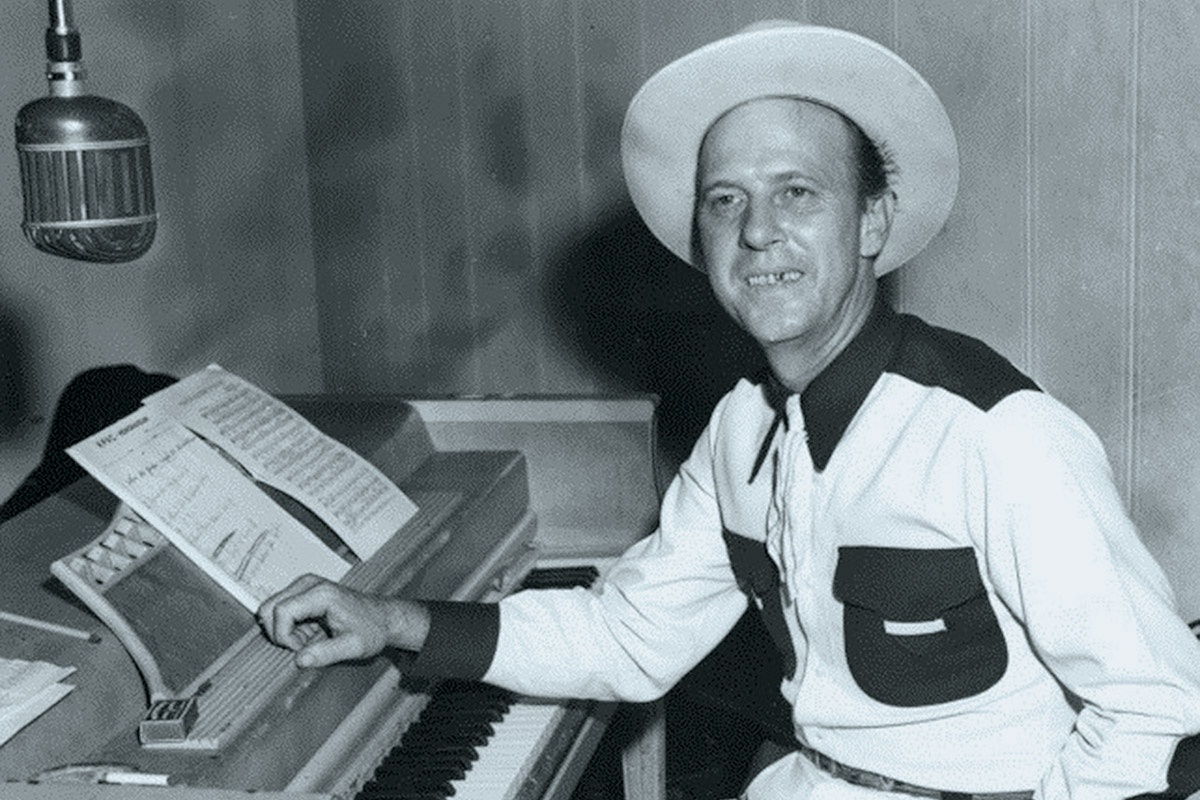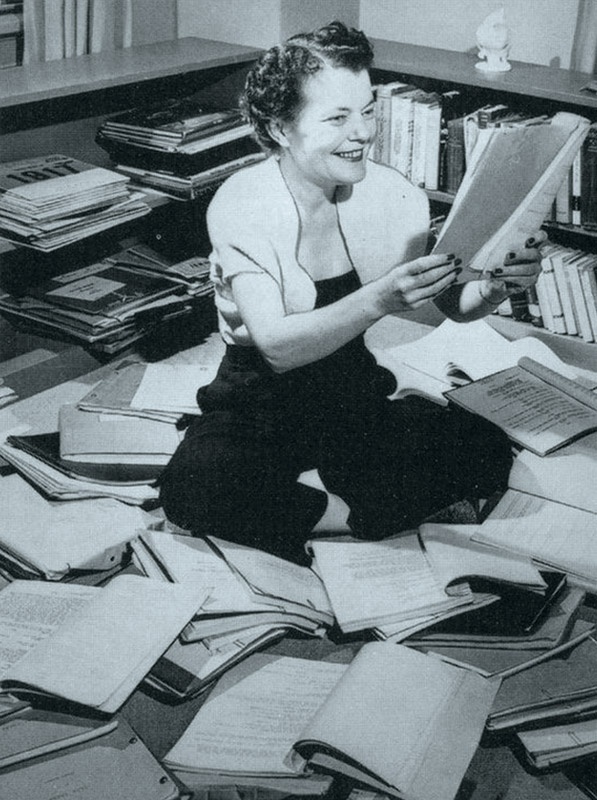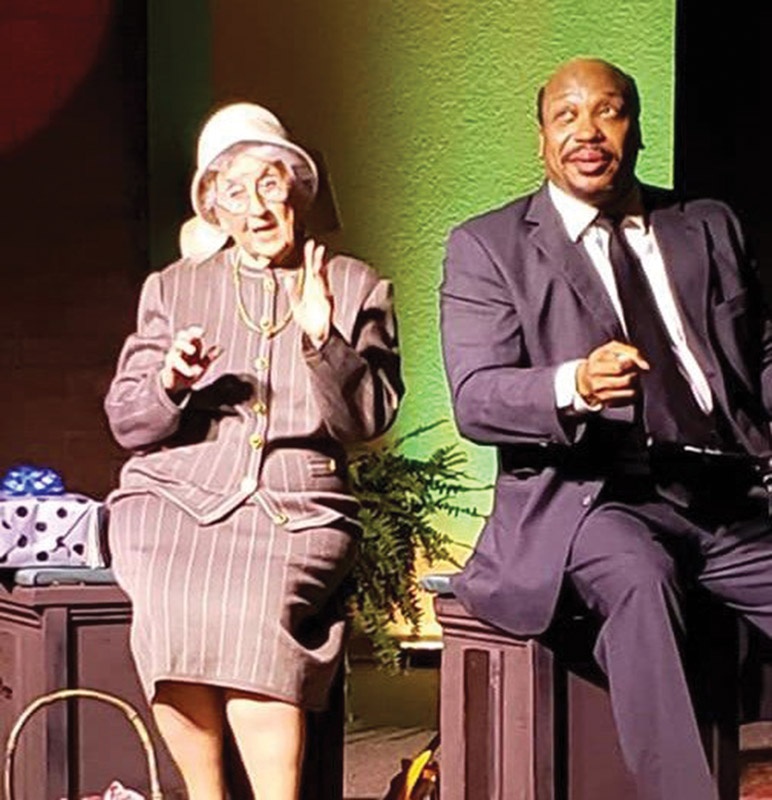Our piece of East Texas may be relatively small in population, but it has produced some very famous and influential people over the years. Two of the best-known natives are trial lawyer Percy Foreman and former Texas Governor William P. Hobby. However, our area also lays claim to some very interesting and inspiring folks with talents in music, writing and theater, including a Pulitzer Prize winner and Tony nominee and an American Idol finalist.

Following the American Idol competition, the city of Livingston threw Booth a parade, where thousands of people lined the streets to cheer her accomplishments. Booth was named “Livingston’s Own Diamond.”
Laci Kaye Booth
Most recently, Livingston’s own Laci Kaye Booth made it to the final four on the ABC series American Idol. Her heartfelt performances and smoky voice made instant fans of judges Katy Perry, Luke Bryan and Lionel Richie as well as millions of people across America.
So how did this small-town girl take to the instant fame?
“I definitely think that growing up in Livingston made me humble, kept me grounded and also gave me a kind heart,” Booth said. “Growing up here, I performed at venues around Livingston like the Blue Duck, Across the Tracks and El Taquito Mexican Restaurant. I also performed at many other local events and benefits. I enjoyed Across the Tracks because it was a listening room; I got to play and sing my original music. At the Blue Duck, I sang gospel music on Sundays. I felt like both venues helped shape my style into what it is today.”
The American Idol experience not only gave her exposure and confidence, it catapulted her career to the national stage. She recently signed with a management company and is getting ready to move to Nashville.
“I will always be a small-town girl at heart, and of course, I could never forget where I came from,” Booth said. “Although Polk County will always be a part of me, I’m excited for my move to Nashville. I have many incredibly exciting things going on that I can’t wait to share.”

Corrigan’s Aubrey “Moon” Mullican sold millions of records as the King of the Hillbilly Piano Players.
Aubrey “Moon” Mullican
Booth isn’t the first musician to put Polk County on the map. That distinction may belong to Aubrey Wilson Mullican, better known to most Americans as Moon Mullican, King of the Hillbilly Piano Players.
Born in 1909 in Corrigan, Mullican lived on an 87-acre family farm during his childhood. There he developed his musical skills on an old 1917 pump organ purchased by his father, who wanted him to learn gospel music. Even though he did play the organ in church, Mullican developed a love for blues music from one of the black farmhands who worked on the family farm.
Mullican began to play dances as a teenager, much to his father’s dismay, and wanted to be a professional musician. At 16, he moved to Houston and worked as a piano player in brothels. Even with that unusual background, he was noticed by many other musicians of the era and soon began performing with popular groups such as the Blue Ridge Playboys, the Texas Wanderers and the Showboys.
After recording with several small labels, Mullican signed a contract with King Records in 1947, and his career took off.
His first two records for the label sold more than a million copies each—a number almost unheard of at the time. His blend of blues, swing, honky-tonk, country, pop and ragtime resonated with fans, and he went on to record more than 100 records on the King label.
In 1949, Mullican joined the cast of Nashville’s Grand Ole Opry as a solo act, remaining with the show until 1955. Over the course of his career, he performed with Jim Reeves, Hank Williams, Tennessee Ernie Ford, Red Foley and many others. He continued recording and performing until his death in 1967.

Once the toast of Broadway, Sally Mayes now focuses her musical talents on performing in cabarets and on tour across America.
Sally Mayes
Just as Mullican and Booth took the music world by storm, so did Polk County native Sally Mayes in the realm of theater.
Born in Livingston in 1959, Mayes started out as a jazz and pop singer while attending the University of Houston. After graduation, she moved to New York City, where she made her Broadway debut in 1989 as Winona Shook in Cy Coleman’s Welcome to the Club. For that performance, she won a Theatre World Award. She followed that show with an off-Broadway production of Closer Than Ever, which was a critical success, ran for 312 performances and produced an original cast recording.
In 1993, Mayes appeared as Ilona Ritter in a revival of Jerry Bock’s She Loves Me at the Roundabout Theatre. The production moved to Broadway the following year, and Mayes garnered Tony and Drama Desk award nominations for her performance. Television viewers may remember her memorable performance as Mrs. MacAfee in the TV movie version of Bye Bye Birdie with Jason Alexander, Vanessa Williams and Chynna Phillips.
In 2000, Mayes went off-Broadway again to play Keely in James Hindman’s critically acclaimed musical Pete ’n’ Keely and was nominated again for a Drama Desk Award for Outstanding Actress in a Musical.
She continued to perform in TV shows and onstage, appearing in Sex and the City and Law & Order: Criminal Intent. She returned to Broadway in 2003 as Aunt Corene in the musical Urban Cowboy, which earned her a third Drama Desk Award nomination. She also appeared in the Mel Brooks musical The Producers.
When she isn’t performing on Broadway, she keeps busy as a concert and cabaret singer in New York.

Famed producer, director and artist Margo Jones looks over some of the many scripts she received on a daily basis from promising young playwrights. One of the young playwrights that Jones discovered was Tennessee Williams.
Margo Jones
While Mayes chose New York as the place to shape and share her talents, another legendary Livingstonian chose to stay in Texas for much of her career.
Margo Jones is widely known as the mother of the regional theater movement in America as well as for giving a national voice to budding playwright Tennessee Williams.
Born in Livingston in 1913, Jones left Polk County after high school to go to Houston, where she worked as a producer and director in the theater she founded, the Federal Theatre. She recognized that there was talent in Houston, and it gave her an idea. Why not create regional theaters that can tap into the talent that exists outside of New York?
She stayed in Houston for more than a decade, building talent pools of actors and directors and never forgetting about her dream of regional theater. But Broadway beckoned (as it often does for those in theater), so Jones turned her sights to New York.
In 1945, she directed a new play by an unknown playwright, and the rest, as they say, is history. The playwright was Tennessee Williams, and the play was The Glass Menagerie, still considered to be one of the greatest American plays.
The success of The Glass Menagerie allowed Jones to take the next step toward her dream of running a repertory theater outside of New York City. At the time, Dallas was a larger city and was better located for a regional theater than Houston, so Jones moved to Dallas and started Theatre ’47, America’s first regional theater company. During her tenure there, she produced or directed 85 plays.
As wonderful and successful as her career was, her death was as tragic as any of the dramas she produced for the stage.
In July 1955, Jones invited friends over for a small get-together. During the party, she spilled red paint on her carpet. The next day, her secretary hired professional cleaners to remove the stains. The cleaners used carbon tetrachloride, a strong solvent used in the dry-cleaning process at the time. Some of the chemical was absorbed into her carpet and later evaporated during the night, filling Jones’ house with toxic fumes. She woke up dizzy and collapsed unconscious on the couch. Her secretary found her later that day and rushed her to the hospital, but she died seven days later at the age of 43, never knowing what killed her.

Playwright and actor Don Wilson Glenn was nominated for the 2003 Outer Critics Circle Award for his play American Menu, which takes place in the late 1960s, during the height of the civil rights struggle.
Don Wilson Glenn
Another area native who has helped to shape American theater is Don Wilson Glenn, an African American playwright of Native American descent from the Apalachicola Band of Creek Indians of East Texas.
Born in Livingston in 1965, Glenn wowed the theater world in 2002 with his play American Menu, which takes place at a diner in Livingston in May 1968, shortly after the murder of Martin Luther King Jr. and a month before the assassination of Robert F. Kennedy.
In Glenn’s description of the play, five black kitchen workers at the segregated lunch counter are forced to engage in painful self-examination brought about by yet another senseless death in the town. Through passionate conversations, these women face the realities of life on the cusp of change. Jammed in a hot, airless kitchen, they must battle prejudice, poverty, ignorance and each other as they search for inspiration. In the midst of this seemingly endless time, they manage to find humor that helps bridge the gaps and reconnects them to their sense of humanity.
The play received numerous accolades, including a 2003 Outer Critics Circle Award nomination and the 2002 AUDELCO Award for Excellence in Black Theatre.
Glenn received his Bachelor of Arts from the University of Houston at Clear Lake. He is also an actor and just finished a successful run as Hoke Colburn in the Angelina Community Theatre production of Driving Miss Daisy.

President Barack Obama presents Livingston’s Annette Gordon-Reed with the National Humanities Medal, the highest national honor for the arts and humanities.
Annette Gordon-Reed
Finally, we have Polk County’s only Pulitzer Prize-winning author, Annette Gordon-Reed.
Her first book sparked great interest from fellow scholars, as it investigated the long-standing historical controversy of whether Thomas Jefferson had a sexual relationship with his slave Sally Hemings and fathered children by her.
Gordon-Reed was born in Livingston in 1958 and became interested in Jefferson when she was a student in elementary school. She graduated from Dartmouth College in 1981 and Harvard Law School, where she was a member of the Harvard Law Review, in 1984.
Her legal background animated and informed her research on Jefferson and Hemings. She drew on her legal training to apply context and reasonable interpretation to the sparse documentation that existed on the subject.
In 2008, Gordon-Reed became the first African American to win the Pulitzer Prize for history. She won 15 additional awards for the book, including the National Book Award for Nonfiction, Society for Historians of the Early American Republic Book Award, George Washington Book Prize, Anisfield-Wolf Book Award, New Jersey Council of the Humanities Book Award, Frederick Douglass Prize, Owsley Award from the Southern Historical Association and Library of Virginia Literary Award.
President Barack Obama honored Gordon-Reed with the National Humanities Medal, the highest national honor for the arts and humanities, on February 25, 2010. In October of the same year, Gordon-Reed was awarded a MacArthur Fellowship, also known as the “genius grant.” The MacArthur Foundation noted that her “persistent investigation into the life of an iconic American president has dramatically changed the course of Jeffersonian scholarship.”
She is currently the Charles Warren Professor of American Legal History at Harvard.
Polk County may be small, but it has made a mighty big impact on the arts.




